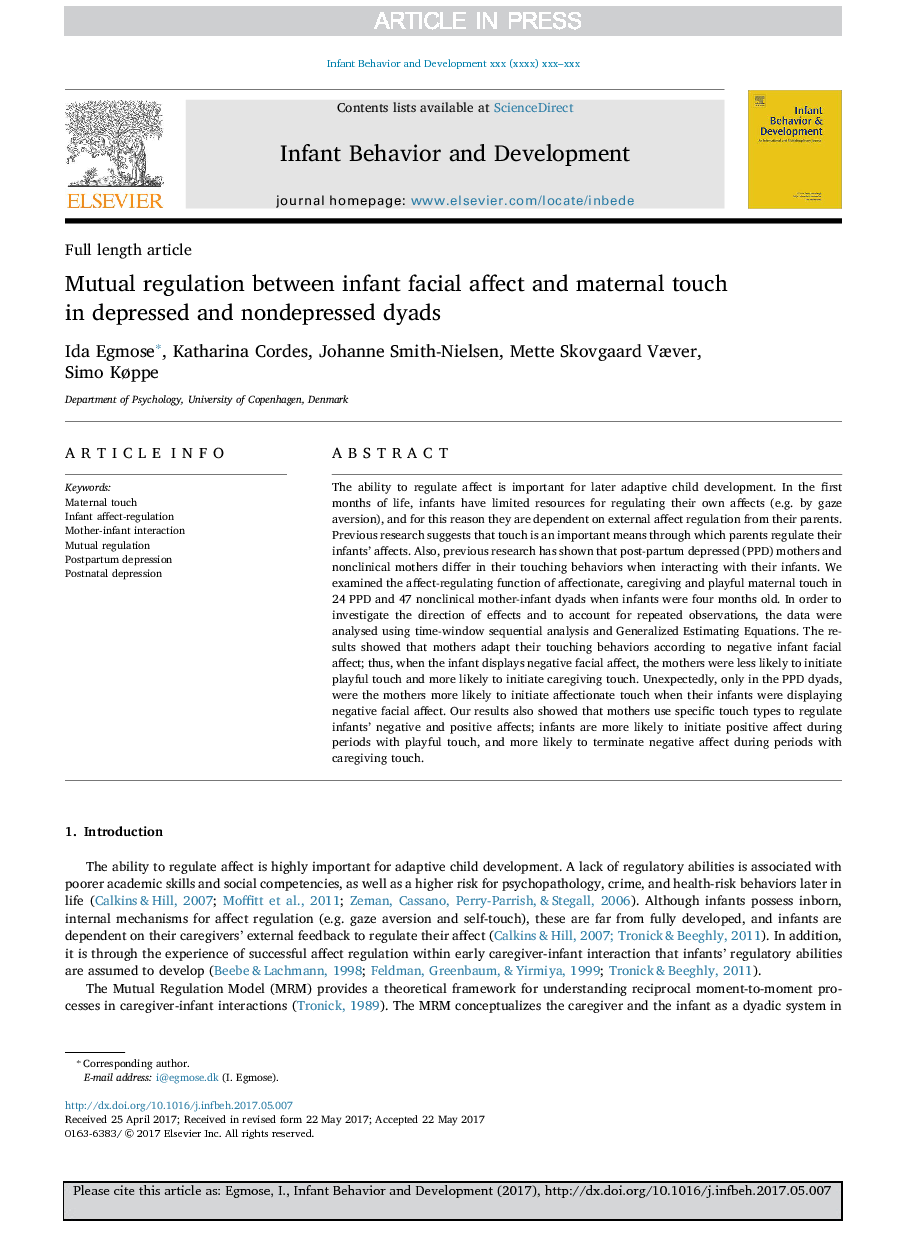ترجمه فارسی عنوان مقاله
مقررات متقابل بین اثرات شانه نوزادان و لمس مادران در افراد افسرده و غیر افسرده
عنوان انگلیسی
Mutual regulation between infant facial affect and maternal touch in depressed and nondepressed dyads
| کد مقاله | سال انتشار | تعداد صفحات مقاله انگلیسی |
|---|---|---|
| 123626 | 2018 | 10 صفحه PDF |
منبع

Publisher : Elsevier - Science Direct (الزویر - ساینس دایرکت)
Journal : Infant Behavior and Development, Volume 50, February 2018, Pages 274-283
ترجمه کلمات کلیدی
لمس مادران، تغذیه نوزادان، تعامل مادر و نوزاد، مقررات متقابل، افسردگی پس از زایمان، افسردگی پس از زایمان،
کلمات کلیدی انگلیسی
Maternal touch; Infant affect-regulation; Mother-infant interaction; Mutual regulation; Postpartum depression; Postnatal depression;

